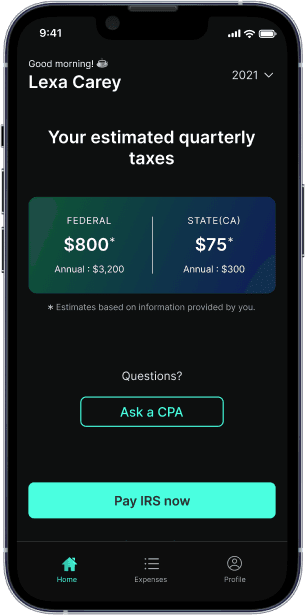IRS is now accepting returns – Let a dedicated CPA handle your taxes!
How Much Do You Make File Taxes?
How Much Do You Make File Taxes?
Table of contents
Key takeaways:...Read more
How much do I have to make to file taxes?...Read more
Impact of standard deduction on the amount of taxes owed...Read more
How much do you have to make to pay taxes when self-employed?...Read more
Income threshold for dependents...Read more
Do I have to file taxes?...Read more
Who needs to file a tax return?...Read more
What is the minimum income to file taxes?...Read more
When can you start filing taxes 2024?...Read more
How much do I have to make to pay taxes?...Read more
How much do you have to make to file taxes for free?...Read more
Key takeaways:
- The minimum income limit to file taxes is $13,850 for single filers under 65, $27,700 for joint filers under 65 and $30,700 for couples older than 65.
- The minimum taxable income is $400 for self-employed individuals.
- Filing tax returns can help you get tax credits like the EITC and the child tax credit.
How much do I have to make to file taxes?
Impact of standard deduction on the amount of taxes owed
How much do you have to make to pay taxes when self-employed?
Income threshold for dependents
Do I have to file taxes?
Who needs to file a tax return?
What is the minimum income to file taxes?
When can you start filing taxes 2024?
How much do I have to make to pay taxes?
How much do you have to make to file taxes for free?
What’s FlyFin?
Expert tax CPAs ensure 100%-accurate tax filing
A.I. finds every tax deduction, eliminating 95% of your work
On average users save $3,700

